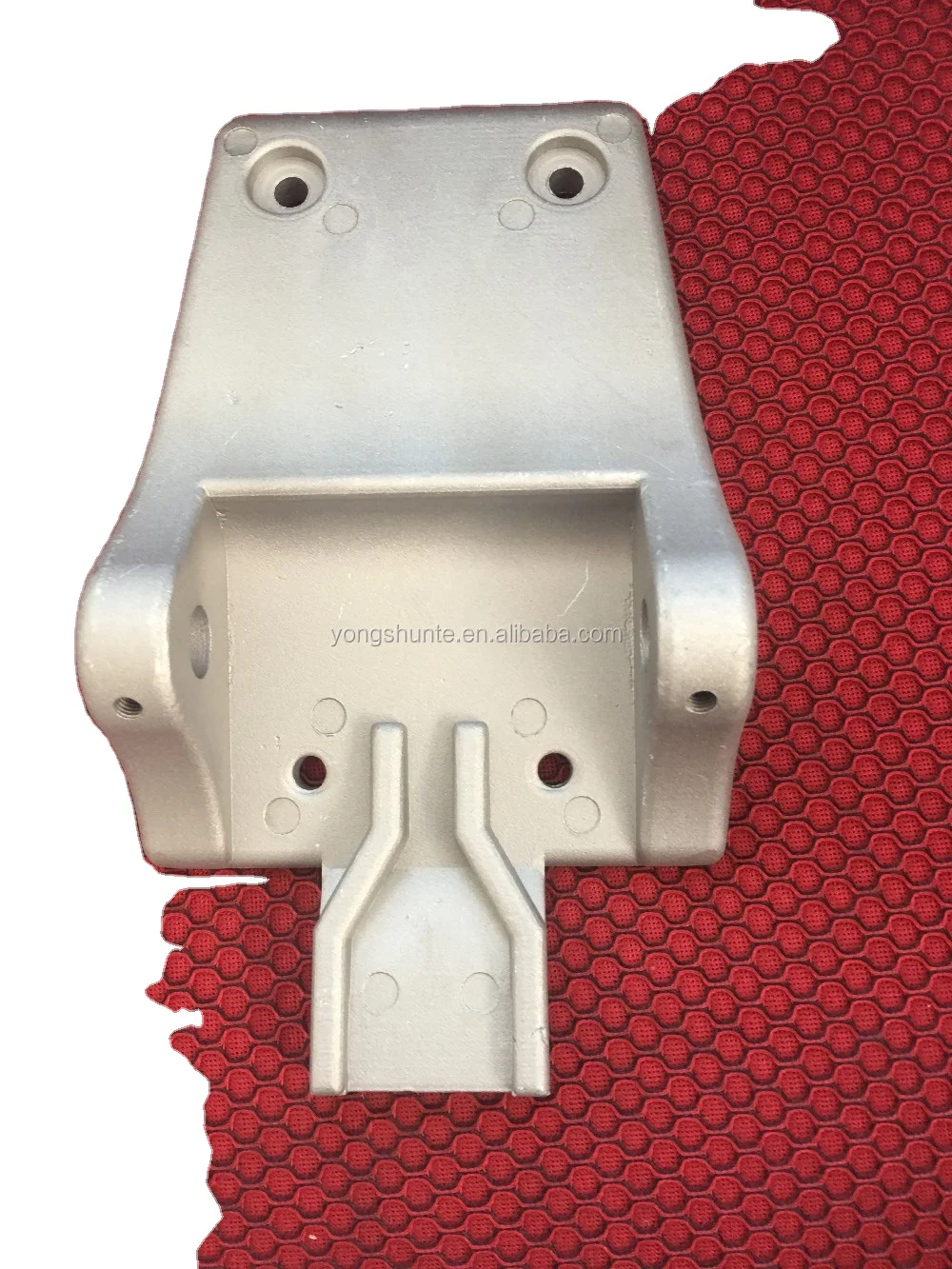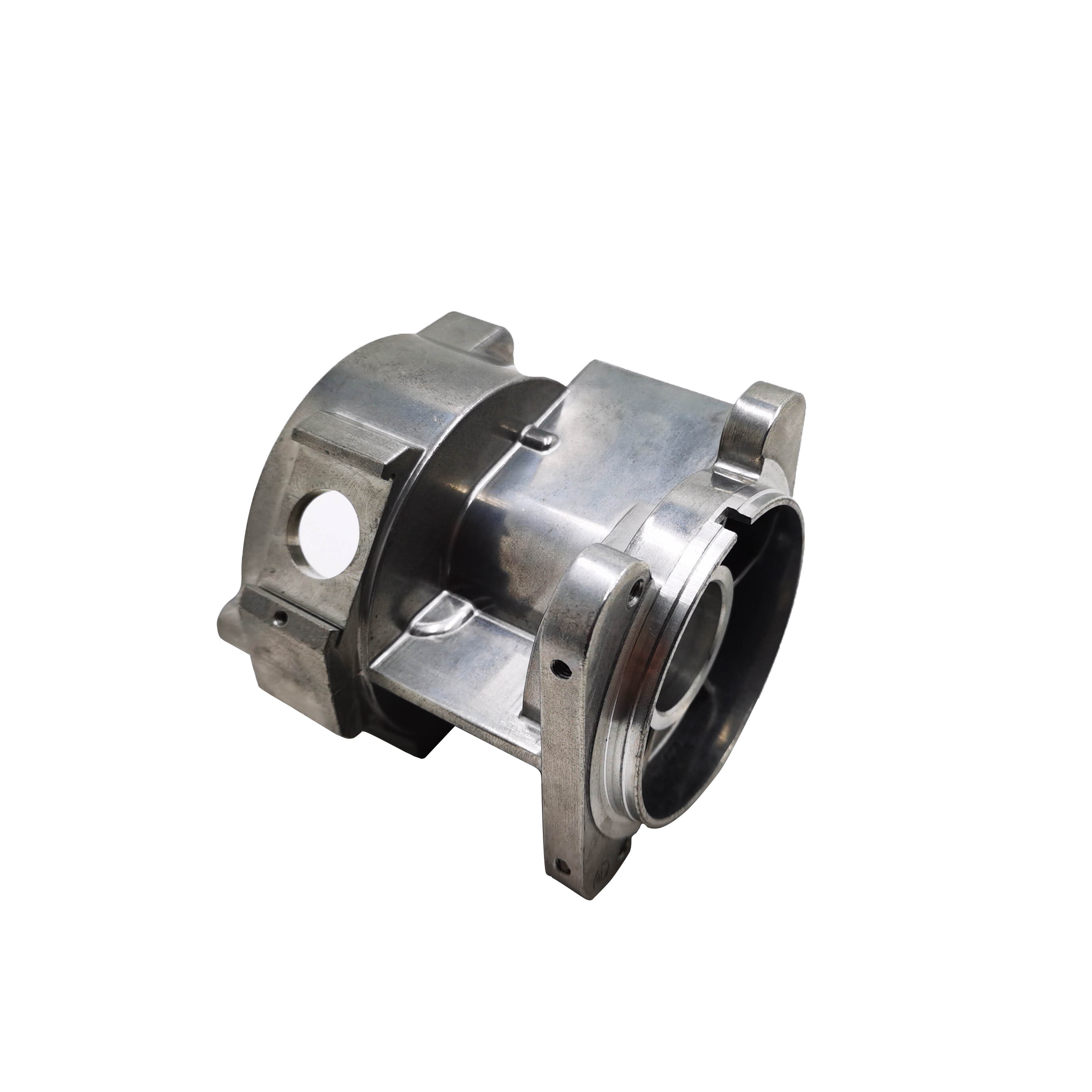The Future of Light Weight Aluminum Foundries: Trends and Technologies Shaping the Industry
The light weight aluminum foundry sector is going through significant improvement. Key patterns highlight the value of sustainability and performance. Advancements in clever manufacturing and automation are coming to be common. Foundries are significantly concentrated on using recycled products. This shift questions regarding future methods and technologies. Just how will these changes effect manufacturing techniques and market characteristics? The responses might redefine the industry landscape in unexpected ways.
Improvements in Smart Production Technologies
As the aluminum shop market develops, improvements in wise manufacturing innovations are ending up being significantly vital for improving performance and effectiveness. The integration of automation, expert system, and the Web of Points (IoT) is changing typical shop operations. These modern technologies enable real-time tracking of processes, enabling instant modifications that enhance result and lower waste.
Maker understanding formulas examine manufacturing information to determine patterns and anticipate maintenance needs, decreasing downtime. Robotics are progressively used for recurring jobs, freeing proficient employees to concentrate on more intricate difficulties. Furthermore, digital twins-- virtual models of physical processes-- promote simulations that can improve layout and operational approaches.
The fostering of these wise manufacturing technologies is driving competitive advantages in the aluminum shop sector. By streamlining operations and improving decision-making capabilities, factories can meet expanding market needs while maintaining high-quality standards. The future of aluminum factories is undoubtedly linked to these technical advancements.
Welcoming Eco-Friendly Products and Processes
The aluminum factory industry is significantly focusing on eco-friendly materials and procedures to improve sustainability. This shift includes the adoption of lasting product sourcing, energy-efficient manufacturing techniques, and efficient recycling and waste monitoring approaches. By incorporating these practices, shops aim to decrease their environmental effect while preserving competition in the market.
Sustainable Product Sourcing
Just how can light weight aluminum foundries enhance their sustainability initiatives? Sustainable material sourcing has actually arised as an essential strategy in accomplishing this goal. By prioritizing recycled aluminum, shops can significantly decrease their environmental impact, as recycled materials need much less power and fewer sources compared to main aluminum manufacturing. Furthermore, sourcing materials from licensed suppliers who stick to environmentally friendly techniques advertises accountable mining and reduces eco-friendly effect. Foundries are additionally discovering alternate materials, such as biopolymers and environment-friendly layers, to match standard light weight aluminum processes. Working together with stakeholders, consisting of vendors and ecological organizations, promotes technology in sourcing techniques. Ultimately, embracing lasting product sourcing not just straightens with global sustainability objectives however additionally positions aluminum foundries as leaders in eco accountable manufacturing.
Energy-Efficient Production Methods
Light weight aluminum shops are significantly taking on energy-efficient manufacturing strategies to match their sustainable material sourcing campaigns. These approaches focus on decreasing power intake throughout the production procedure. Advanced modern technologies, such as induction melting and enhanced casting processes, are being carried out to lower the overall carbon impact. In addition, automation and clever manufacturing systems improve operational effectiveness, permitting far better energy monitoring. Shops are likewise discovering the integration of sustainable power resources, such as solar and wind, to power their operations. By prioritizing energy effectiveness, aluminum factories not only reduced manufacturing expenses but also straighten themselves with global sustainability objectives, making certain a more eco liable technique to aluminum production while fulfilling the increasing need for green practices in the industry.
Reusing and Waste Monitoring
Accepting eco-friendly materials and procedures, aluminum factories are focusing on recycling and waste monitoring techniques to boost sustainability in their operations. By incorporating closed-loop systems, these centers are lessening waste and taking full advantage of resource performance. Scrap light weight aluminum, a readily available material, is being reused on-site, considerably decreasing the demand for virgin products and lowering energy consumption. Advancements in sorting and processing innovations better assist in the recycling of light weight aluminum, making sure that even polluted materials can be repurposed efficiently. Furthermore, factories are taking on lasting techniques such as decreasing contaminated materials and advertising the usage of naturally degradable materials for product packaging. This commitment to reusing not just lowers environmental impact however likewise boosts the financial stability of light weight aluminum shops in a competitive market.
The Role of Automation and Robotics
Automation and robotics are increasingly changing the aluminum shop sector, significantly enhancing production performance. By incorporating advanced innovations, shops can decrease labor expenses while all at once improving safety and security standards for their labor force. This shift not just simplifies operations yet also places the market for sustainable development in an open market.
Enhanced Manufacturing Efficiency
Changing production procedures, the assimilation of advanced robotics and automation modern technologies has actually come to be a cornerstone for light weight aluminum factories looking for enhanced performance. These developments enhance operations, lower cycle times, and enhance product quality by decreasing human error. Automated systems can monitor assembly line in real-time, allowing for immediate changes that maximize result. Furthermore, robotics promote the handling of dangerous products, making certain safer functioning environments while boosting throughput. Predictive maintenance innovations also add to effectiveness by expecting tools failings, consequently lowering downtime. As a result, light weight aluminum foundries can achieve greater uniformity in their products while responding much more quickly to market needs. This embrace of automation is setting a brand-new standard for performance and operational excellence within the market.

Lowering Labor Costs
The shift towards progressed robotics and automation in aluminum foundries not only boosts production performance but additionally plays a substantial role in minimizing labor costs. By integrating automated systems, foundries can decrease the dependence on manual work, which usually entails high wages and training costs. Robotics simplify repeated jobs such as putting, molding, and ending up, permitting for a greater result with less employees. This technical adjustment look at this web-site not only minimizes labor-related costs however also boosts uniformity and quality in production. Moreover, automation can run around the clock, maximizing functional hours without the linked prices of overtime or change differentials. As an outcome, light weight aluminum factories can accomplish substantial financial savings while keeping competitive rates in a developing market landscape.
Improving Safety Standards
While standard light weight aluminum factory procedures often subject employees to harmful settings, the combination of robotics and automation significantly enhances security standards within the sector. Automated systems can do high-risk tasks, such as molten metal handling and heavy lifting, reducing human exposure to unsafe conditions. Furthermore, robotics can operate in hazardous ambiences and severe temperatures, efficiently lessening the threat of injury. Advanced monitoring innovations and expert system assurance real-time security analyses, enabling immediate reactions to prospective threats. Automation simplifies workflows, reducing the chance of mishaps caused by human error. Consequently, the adoption of these modern technologies not just boosts security but additionally fosters an extra effective and effective workplace in light weight aluminum foundries.
Enhancing Power Effectiveness in Manufacturing
As aluminum factories seek to preserve competitiveness in a developing market, improving energy efficiency in manufacturing has emerged as an essential focus. By embracing advanced innovations such as high-efficiency melting heaters and automated temperature level controls, foundries can especially minimize energy consumption. Executing real-time surveillance systems enables specific tracking of energy usage throughout the production procedure, making it possible for quick changes to maximize effectiveness.
Furthermore, moving to different power resources, consisting of sustainable choices, can additionally decrease the carbon footprint. The assimilation of energy recovery systems, which recover waste heat for reuse, is coming to be progressively usual. Educating personnel in energy management methods assures that every person associated with the manufacturing process is conscious of energy use.
These campaigns not just lower operational expenses yet likewise straighten with worldwide sustainability goals, positioning light weight aluminum foundries as accountable players in the sector while enhancing their overall competitiveness. - aluminum casting
Technologies in Recycling Aluminum
Advancements in recycling aluminum have actually gotten momentum along with initiatives to improve energy performance in manufacturing. The light weight aluminum market has actually accepted sophisticated modern technologies that streamline the reusing procedure, lowering power consumption and ecological influence. Strategies such as hydrometallurgy and brand-new sorting innovations enhance the extraction of light weight aluminum from scrap, improving return prices and making certain greater high quality recycled material.
Additionally, the development of closed-loop recycling systems enables factories to recycle light weight aluminum without substantial destruction in top quality, making the process more sustainable. Advancements in logistics and collection, consisting of enhanced tracking systems and automated sorting, have actually also played an essential duty in enhancing the efficiency of light weight aluminum recuperation. These improvements not only add to a circular economic situation yet also assist minimize the carbon footprint connected with light weight aluminum manufacturing. As the demand for lasting techniques grows, these advancements position the light weight aluminum factory industry as a leader in accountable resource management.
Reacting To Market Demands and Consumer Trends
Flexibility has come to be a foundation for aluminum factories reacting to progressing market demands and customer patterns. As industries progressively focus on sustainability, light weight aluminum factories are moving in the content direction of green practices, consisting of enhanced reusing processes and reduced carbon footprints. This change aligns with consumer preferences for environmentally responsible products, driving shops to introduce their offerings.
Additionally, the surge of light-weight products in aerospace and automotive fields requires developments in aluminum alloys and casting strategies. Foundries are purchasing r & d to create high-strength, light-weight parts that fulfill stringent efficiency requirements.
Moreover, modification has actually gotten traction, with customers seeking customized options. Aluminum shops are leveraging sophisticated production modern technologies, such as 3D printing, to suit certain customer demands effectively. This responsiveness not only satisfies customer needs yet additionally settings aluminum shops competitively in a vibrant market landscape, ensuring their importance in an ever-changing industrial atmosphere.

Often Asked Inquiries
How Do Aluminum Foundries Impact Resident Economies?
Aluminum shops significantly affect regional economic climates by producing tasks, stimulating need for local suppliers, and adding to community growth. Their procedures often bring about enhanced tax incomes, which can fund essential public solutions and infrastructure enhancements.
What Are the Safety Regulations for Light Weight Aluminum Factory Workers?
Security regulations for aluminum factory employees consist of obligatory individual safety equipment, appropriate air flow systems, routine training on hazardous materials, and adherence to guidelines established by occupational health and wellness managements to lessen risks and guarantee employee safety. - aluminum casting
Just How Does Light Weight Aluminum Recycling Affect Global Supply Chains?
Light weight aluminum reusing considerably lowers demand for basic materials, enhances resource effectiveness, and maintains prices. This change impacts international supply chains by cultivating a round economic climate, advertising sustainability, and guaranteeing an extra resistant market in changing markets.
What Occupation Opportunities Exist in the Aluminum Shop Industry?
Different occupation opportunities exist in the aluminum shop industry, consisting of functions in design, quality assurance, manufacturing administration, and research and development. Competent labor settings such as mold makers and maker operators are also popular.
Just How Do International Trade Plans Influence Light Weight Aluminum Foundries?
International trade policies significantly impact light weight aluminum shops by influencing import tolls, supply chain dynamics, and market accessibility. These factors can influence functional prices, competition, and overall profitability within the worldwide aluminum manufacturing landscape.
By focusing on recycled aluminum, shops can substantially minimize their ecological impact, as recycled products need less energy and fewer sources compared to main aluminum production. Light weight aluminum foundries are increasingly embracing energy-efficient manufacturing methods to enhance their sustainable material sourcing initiatives. Automation and robotics are increasingly changing the light weight aluminum factory market, significantly boosting manufacturing performance. The shift in the direction of progressed robotics and Extra resources automation in light weight aluminum factories not only enhances production efficiency however also plays a substantial function in minimizing labor prices. As light weight aluminum factories look for to maintain competition in a developing market, enhancing energy performance in manufacturing has emerged as a vital focus.